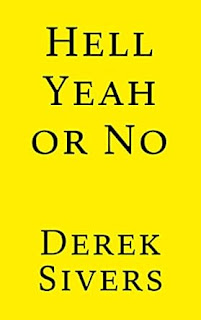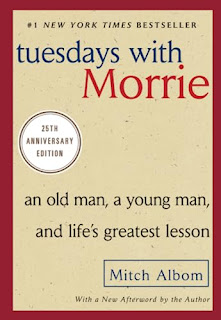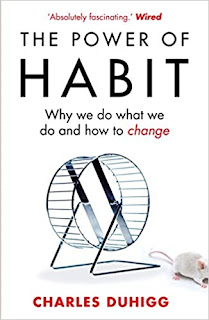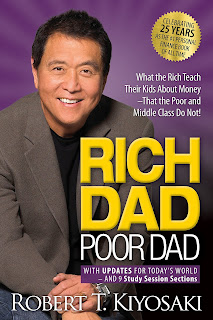Hell Yeah or No by Derek Sivers
Hell Yeah or No is one of the best book that helps you distinguish between what is worth-doing and what is not. It tells readers when to say "yes" and when to "no. Author says that key to creativity is digital and physical disconnectivity in modern world.
The book summary in one sentence: Learn to say "no" to almost everything unless you find something that provokes to say "hell yeah" to it.
My Notes From The Book.
- Find out things that you can do for self-satisfaction not for money or attention.
- Be useful, do something for either local community or global one.
- Take actions. Intention does not matter. Only actions matter.
- Learn to be more effective. you can't do everything all the time. Learn to focus on the things that you can uniquely contribute.
- People will never get happy at what you are doing. Do what you want to do.
- Imitate to innovate. Start copying what you want to be or have, or you think you should have produced.
- Opinions changed. Your opinions of past will be changed in future.
- Don't take public criticism seriously. They comment on your creativity not upon you.
- "How you do anything is how you do everything. It all matters." Character determines the future of individuals. Carefully do everything you do.
- You cannot find out problems of your culture unless you go outside of it. Travelling is the best university. Travel.
- Present-focused people enjoy every moment of his life. Future-focused ones utilise present for future goals. Try to seek balance in them. Enjoy moments and stay committed to your goals. Little actions change your identity.
- Identity is made and shaped by actions and one can change his identity by taking small actions.
Don't be overambitious. Be satisfied with what you have. Adopt the bronze medallist approach. A bronze medallist withdraw satisfaction from the fact that if he got late a bit he would not have been in the medallist category.
- Focus on only one thing at time. If you are at the age of thirty and have six different fields. Then plan to spend a decade at each of them. It may seem foolish to plan for ninety but it is probable that this time will come.
- Quit what you love. Get out of your comfortable zone.
- Don't buy at the upper limit of your budget. It will make your life difficult. Spend at the lower threshold of your budget.
- The longer I wait, the smarter I get. Don't take decision in emotional state of mind.
- There is no speed limit of learning. Learn things at your pace.
- Try to be disconnected physically and digitally for few hours. Dis connectivity is the mother of creativity. All kinds of inputs turn into output in isolation.
- Write. practice, and create that is what is rare and valuable these days.
- You don't need to buy expensive instrument to start new habits like meditation, exercise, and a new language. You can start them freely at home. You don't need to pay huge amount of money to seek education. All the great schools in world have their free courses online.
- If you love doing something, it will seem fun otherwise it will seem to be combination of the large number of tedious steps.
- Say yes to almost everything in your twenties. Seek as many experiences as you can in early age.
- Then pick one spend a decade to build expertise in it.
- "Most people overestimate what they can do in one year, and underestimate what they can do in ten years." Make plans of ten ten years, and then keep committed to it.
- Consider yourself below average. It will help you keep learning.




Thanks for such a quick and informative summary 😊
ReplyDelete